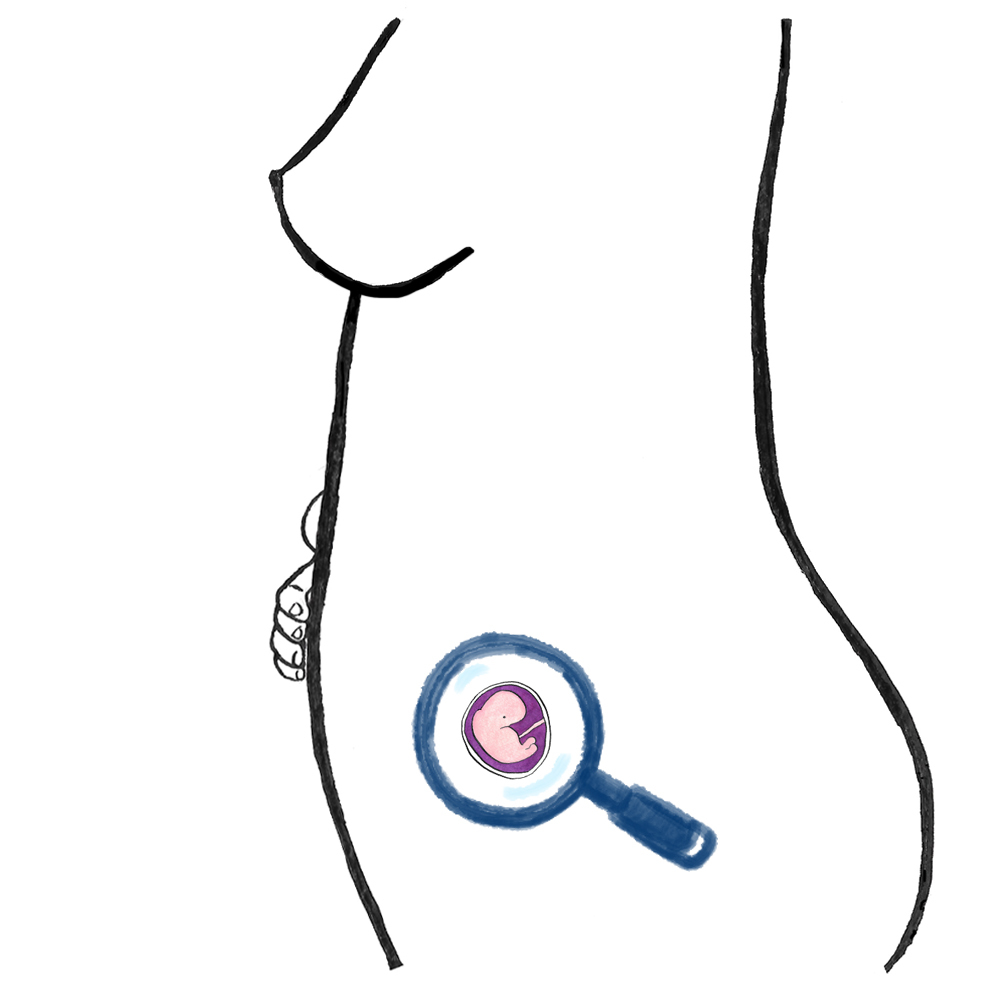10 weeks pregnant
Weekly update

Your Child has entered the final week of the embryonic period, and after it, there is a lower chance of miscarriage.
Because Your Child is getting bigger, the amount of blood in your body increase, which in turn can cause viscose veins and greater vaginal discharge.
Your Child’s development
Your Child has entered the final week of the embryonic period. So, Your Child is about to move into the fetal stage, which lasts until birth. Your baby now measures about 3 cm and weighs nearly 4 grams — about the size of a green olive.
Your Child’s heart, which is beating around two to three times as fast as yours, can now be clearly detected. Also, Your Child has become mobile enough that the movement might even be seen in an ultrasound scan.
The sex: Although there are already slight sex differences in the appearance of the external genitalia, they are not distinctive enough to permit accurate sexual identification. However, if Your Child is a baby boy, the testes are starting to produce testosterone hormone.
The body: The outer part of the ears are fully developed, and the eyelids are more obvious but are closed. Bones and cartilage are forming, and small indentations on the legs are developing into knees and ankles. The arms, complete with the elbows, can flex already. Your Child’s first tooth buds are now developing under the gums, and the stomach is producing digestive juices.

Your development
Your total blood volume may increase by up to 30-50% during pregnancy. If you have ever had a cardiac problem, you’ll have to take extra caution because the increased blood volume may be difficult for your heart to handle.
Increased discharge: As a result of extra blood volume, you might have engorged veins and increased vaginal discharge. As long as the vaginal discharge is whitish, thin, and without odor, you don’t have to worry about it. However, if the discharge is yellowish or greenish in color or it appears thick or uneven in texture, it could be a sign of infection.
Varicose veins: The engorged veins are normal consequences of the largely increased blood volume. They may be in the form of varicose veins, which usually appear as enlarged blue veins on the legs, or spider veins, which are small groups of visible veins fanning out from a focal point on your arms, chest, or face. Varicose veins may be painful, but spider veins aren’t.
What you can do now
You need to drink plenty of water during pregnancy. Water is essential to you and your baby because of your increased blood volume and Your Child’s amniotic fluid.
If you’re 35 or older or if you have a family history of genetic conditions, it’s time to consider doing a genetic screening. It is usually done between 10 and 14 weeks of pregnancy. The test can be done at the same time as the dating scan.
You may also want to take a flu shot to prevent you from getting sick while pregnant. Many doctors advise having a flu vaccination and whooping cough vaccination in pregnancy to protect you and your baby.
Verified:
Dr. Wanwadee Sapmee Panyakat (OB-GYN), license no. 41208 (20 October 2021)



